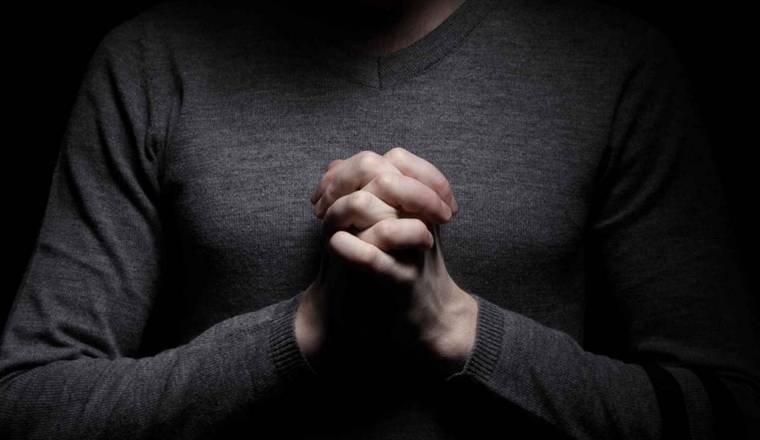Homosexual activism shutters marriage ceremony site near Jerusalem.
 ISTANBUL, Turkey, August 1, 2014 (Morning Star News) – A hotel’s outdoor wedding site near Jerusalem at the world’s only kibbutz for Messianic Jews remains shuttered after the kibbutz lost an appeal against a ruling calling for it to host homosexual wedding parties.
ISTANBUL, Turkey, August 1, 2014 (Morning Star News) – A hotel’s outdoor wedding site near Jerusalem at the world’s only kibbutz for Messianic Jews remains shuttered after the kibbutz lost an appeal against a ruling calling for it to host homosexual wedding parties.
Gay couples in Israel have forced the wedding hall at the Moshav (a kind of kibbutz) Yad Hashmona to close by flooding it with marriage ceremony requests they knew it would refuse to fulfill, thus subjecting it to legal peril, hotel personnel said.
Ayelet Ronen, general secretary of Yad Hashmona, said the requests came from people trying to “punish” the kibbutz for refusing to host the ceremonies or from those seeking a quick payoff in damages if the kibbutz refused.
The kibbutz, which lost the appeal in June, refuses to host the wedding ceremonies because doing so would violate its religious principles and religious freedom.
“We feel God has given us this piece of land in Israel, and it’s a center for believers,” Ronen told Morning Star News. “To bring gays to get married here, it’s crossing the line. We cannot do that. Our conscience wouldn’t allow it.”
Ronen said the calls seemed to be organized by activists. Three days after the initial 2012 ruling in the lawsuit filed in 2009, the massive weight of phone calls and e-mails from the homosexual community led members of Yad Hashmona to close the reception hall altogether. Leaving it open would have exposed the kibbutz to potential lawsuits and legal costs members of the kibbutz would be unable to pay, Ronen said.
Calls to Yad Hashmona with requests for same-sex union celebrations have decreased, but they continue.
Moshe Yoad Cohen, a judge for the Jerusalem District Court, in June upheld a lower court decision that the Moshav Yad Hashmona had discriminated against the couple. Cohen also upheld the penalty imposed by the lower court in 2012, a fine of 60,000 shekels (US$17,400) awarded to the couple and 30,000 shekels (US$8,700) in legal fees for their attorney.
The court rulings were based on a 2000 law in Israel banning business or services from discriminating based on sex, religion, color, race or sexual orientation.

The judge’s ruling against the appeal now means the kibbutz will have to keep the hall closed, unless a higher court accepts another appeal and the kibbutz wins or it can come up with a different business model for the reception hall. Revenue from the kibbutz’ hotel and events business “kept the village going,” Ronen said.
Hotel General Manager Tsuriel Bar-David told Morning Star News the business is fighting for survival.
“We had to stop all activities related to weddings in our hotel so we won’t be accused of discriminating against anyone, since the law does not accept the fact that we want to keep our biblical values in our business,” Bar-David said. “The fact that we don’t do any more weddings and related events has caused us to lose money.”
Ronen said that the kibbutz is “under attack.”
“We feel that Yad Hashmona, our village, is just very special,” she said. “It is the only village of [Messianic Jewish] believers in Israel, and it is really under attack, a serious attack. On the one hand, in Israel we have the Jewish religious people who don’t like us at all. The [ultra-Orthodox] rabbinicals, they hate the believers. On the other hand, you have here the ultra-secular attacking us from the other side [with] the gay community. It’s a very difficult position to be in, and we’re really seeking the Lord to see what will happen.”
For the roughly 120 people who live at the village, Yad Hashmona is a deeply spiritual place. Bar-David said the kibbutz was called to be a “light to the world.” It is the home of no fewer than three ministries, including a center for Bible translation. Located in a wooded area 20 minutes west of Jerusalem by automobile, it is a place where members of the community and visitors alike can seek and share God.
“They come and they sit there and they pray and they meditate very quietly over the Judean hills,” Ronen said. “The amazing thing is God sends us also Israeli groups that like to come and sit and talk and hear what our faith is. It’s amazing. We feel our calling, our testimony, is among our own people. Of course we want a lot of Christians to come, but there will always be an open door for us to share with Israelis.”
Part of maintaining the spiritual identity of Yad Hashmona, both the village and the business, is running the kibbutz in line with “biblical principles,” Ronen said. Accordingly, no alcohol is sold on premises, nor is club-type dancing allowed at the hotel or event hall.
The facility also has rules against allowing the reception hall to be used by any group they feel promotes activities that are inherently short of God’s moral will. Allowing homosexual or other groups promoting biblically prohibited activities to use the facility amounts to a public endorsement of those activities, Ronen said.
Those at Yad Hashmona said they tried to make clear that their opposition to same-sex unions was based on their opposition to what they see as sinful behavior. But from the outset, when a receptionist told one of the lesbian women that they did not allow homosexual weddings at the kibbutz, the women portrayed them as bigots who hate homosexuals. This portrayal continued and was exacerbated in news media.
“I feel sad that we are being blamed for being hateful of others, [just] because we don’t want to take part in doing something against the Word of God,” Bar-David said. “First of all, from a village and community that was always known for being peaceful, loving and welcoming to others, we were shown by the media as a cult that rejects others and shows hatred to anyone who is not like us. We were accused by some people for thinking and acting like the Nazis.”
The general tone in the media against the kibbutz continued at the trial, with members accused in court of carrying on the spirit of the Holocaust. All arguments that the kibbutz had a right not to endorse behavior it sees as immoral or ungodly were ignored. The lesbian couple’s lawyers compared members of the kibbutz to people who discriminate against others because of the color of their skin.
“We said, ‘No way, it’s not the same thing,'” Ronen said. “What we are saying is that under democratic rule, let a religious place stay religious, let a religious place act religious and live in peace with its moral view. Why would you try to force them to accept you, against their beliefs?”
To make sure the couple understood, Ronen gave them an invitation to the kibbutz, she said.
“I personally said in court, ‘I am inviting this couple to come to my house for coffee and we’ll sit and talk about this. Yad Hashmona is open. You can always come visit. Come sit with us. Come eat with us, whatever you want. But you cannot get married here, because this is against God. We won’t be able to live with it in peace.”
Ronen said the members were hurt that the homosexual side in court disregarded their statements about Jesus’ love for all people and automatically dismissed them as hate-mongers for saying that homosexual behavior is sin.
“They said it is hatred, at some point one the brothers of one of the girls there said, ‘People like them – the same kind of spirit was in the Holocaust.’ He even took it that far, it was terrible.”
The couple never accepted the invitation.
DISBELIEF
Members of kibbutz are in a state of disbelief over the quashing of the appeal. Ronen said the verdict was “unbelievable.”
“It’s unbelievable that in a democratic country we cannot follow our conscience and say to a couple like that that they can’t get married here,” she said. “We lost because the judge basically said that the law in Israel does not allow a place that has a business license to discriminate.”
Bar-David said the initial verdict and the loss of the appeal saddened him.
“I feel sad that people are getting so far from God and celebrating the victory of sin,” he said. “I feel shame that this behavior is now officially becoming ‘normal’ and accepted. I feel that we are getting closer and closer to the days when being a follower of Jesus – Yeshua – will not be accepted anymore, and that those who would like to stay faithful will have no choice but to be set apart from the ‘normal’ society.”
Ronen said the community was unsure whether or not to appeal.
“There are people who really want us to appeal, and they say, ‘Go forward with this, move forward with this, appeal it because it is serious.’ But the people in Yad Hashmona don’t really want to appeal it, because every time we go through this, there’s a very, very negative reaction and a very difficult one. So the question is, ‘Should we appeal and fight for our rights, or should we accept it?'”
She said that although “the morals of the world are not quite in our favor,” she personally would like to continue the appeals process.
“I am like Paul in that sense,” she said. “I think you should fight all the way until the end, if you can, for what is your right. Let’s go all the way up. If we lose, we lose.”
As for the future of the business, Ronen said the kibbutz is waiting, hoping and praying.
“You know, if the body of believers in Israel were big, what I would do is close the hotel completely, close the business and open it as a Messianic center or a Believers Center in Israel,” she said. “But the truth is there aren’t that many believers in this country, so it’s not like it has big enough activity, so it’s something to think about, and pray.”
There are approximately 20,000 Messianic Jews living in Israel, according to the U.S. State Department. The total population of Israel is 7.9 million, according to the Central Bureau of Statistics.
With all the problems those at Yad Hashmona face, they are resilient and convinced they are doing the right thing.
“The community in Yad Hashmona had and has a heavy responsibility to be a witness and testimony to the nation of Israel,” Bar-David said. “Right now we were the ones who had to carry the flag and suffer the cost…This case and decision was first of all against God and only then against us. It will not stop us from loving and praying for those who wish to attack us.”
Photo 1: Moshav Yad Hashmona wedding ceremony site. (Morning Star News via Moshav Yad Hashmona)
Photo 2: Allowing gay wedding parties would violate the kibbutz’ religious freedom, hotel personnel said. (Morning Star News via Moshav Yad Hashmona)
Source: http://www.MorningStarNews.org







